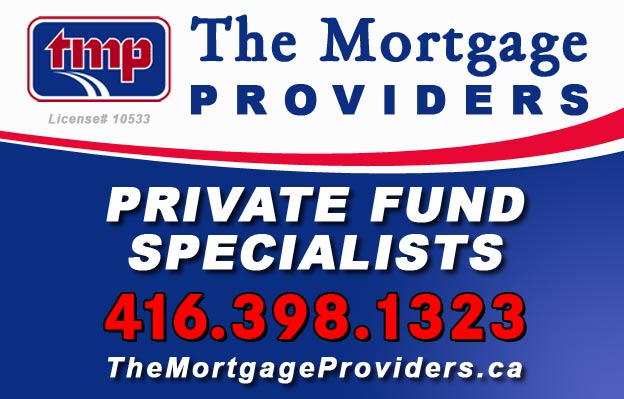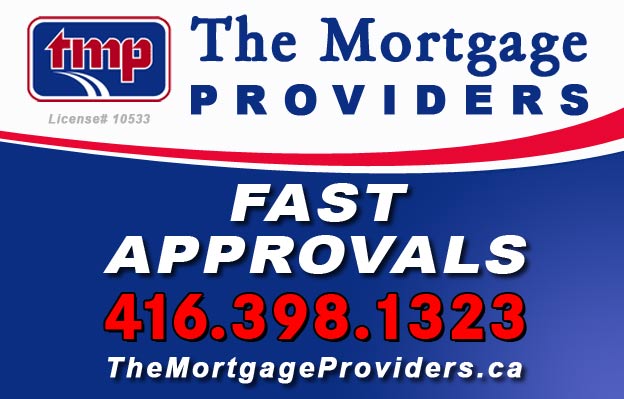Agreement of Purchase and Sales
The legal contract a purchaser and a seller go into. We recommend that you have your offer prepared by a professional realtor that has the knowledge and experience to satisfactorily protect you with the most suitable clauses and conditions.
Amortization Period
The number of years it takes to repay the entire amount of the financing based on a set of fixed payments.
Appraisal
The process of determining the market value of a property.
Assets
What you own or can call upon. Often used in determining net worth or in securing financing.
Assumption Agreement
A legal document signed by a buyer that requires the buyer assume responsibility for the obligations of an existing mortgage. If someone assumes your mortgage, make sure that you get a release from the mortgage company to ensure that you are no longer liable for the debt.
Blended Payments
Equal payments consisting of both an interest and a principal component. Typically, while the payment amount does not change, the principal portion increases, while the interest portion decreases.
Bridge Financing
Bridge financing refers to a special, short-term loan needed to cover the time gap when two properties, both firm sales, are involved and the closing dates don't match. The property being purchased closes before the one that was sold. There is a small set-up fee charged by the lender to have the bridge loan arranged, plus the cost of the interest as now you are carrying both properties for a short time. The rate charged on the bridge loan is about 2-3% above the bank's prime.
Canada Mortgage and Housing Corporation (CMHC)
CMHC is a federal Crown corporation that administers the National Housing Act (NHA). Among other services, they also insure mortgages for lenders that are greater than 80% of the purchase price or value of the home. The cost of that insurance is paid for by the borrower and is generally added to the mortgage amount. These mortgages are often referred to as 'Hi-Ratio' mortgages.
Closed Mortgage
A mortgage that cannot be prepaid or renegotiated for a set period of time without penalties.
Closing Date
The date on which the new owner takes possession of the property and the sale becomes final.
Collateral
An asset, such as term deposit, Canada Savings Bond, or automobile, that you offer as security for a loan.
Conventional Mortgage
A mortgage up to 80% of the purchase price or the value of the property. A mortgage exceeding 80% is referred to as a 'Hi-Ratio' mortgage and the lender will require insurance for that mortgage.
Convertible Mortgage - 6 Month
When rates are on their way down, or you may feel that they will in the near future, a 6 month convertible mortgage offers you the short term commitment at fixed payments, with an added advantage that while within the term, the mortgage is fully convertible to a longer term from 1 year to 10 years. At the end of the 6 month period, the mortgage becomes fully open, where one can renew with the existing lender or transfer to another lender. Even though it is offered at many financial institutions, there are differences from one to the next.
Credit Scoring
A system that assesses a borrower on a number of items, assigning points that are used to determine the borrower's credit worthiness.
Demand Loan
A loan where the balance must be repaid upon request.
Deposit
A sum of money deposited in trust by the purchaser on making an offer to purchase. When the offer is accepted by the vendor (seller), the deposit is held in trust by the listing real estate broker, lawyer, or notary until the closing of the sale, at which point it is given to the vendor. If a house does not close because of the purchaser's failure to comply with the terms set out in the offer, the purchaser forgoes the deposit, and it is given to the vendor as compensation for the breaking of the contract (the offer).
Equity
The difference between the market value of the property and any outstanding mortgages registered against the property. This difference belongs to the owner of that property.
Equity Mortgages
These are mortgages that are assessed on the equity of the home (market value minus the mortgage amount). They can be as high as 75% of the purchase price or value of the property and if more is required, we can look at a small Second mortgage. These are generally offered to applicants that do not meet the normal income and/or credit qualifying guidelines. You may have little or no income verification, self-employed, and/or your credit may be less-than-perfect.
First Mortgage
A debt registered against a property that has first call on that property.
Fixed-Rate Mortgage
A mortgage for which the interest is set for the term of the mortgage.
Fixed-Term Mortgages
With a fixed-rate mortgage, the interest rate is set for the term of the mortgage so that the monthly payment of principal and interest remains the same throughout the term. Regardless of whether rates move up or down, you know exactly how much your payments will be and this simplifies your personal budgeting. In a low rate climate, it is a good idea to take a longer term, fixed-rate mortgage for protection from upward fluctuations in interest rates.
Gross Debt Service Ratio (GDS)
It is one of the mathematical calculations used by lenders to determine a borrower's capacity to repay a mortgage. It takes into account the mortgage payments, property taxes, approximate heating costs, and 50% of any maintenance fees, and this sum is then divided by the gross income of the applicants. Ratios up to 32 % are acceptable.
Guarantor
A person with an established credit rating and sufficient earnings who guarantees to repay the loan for the borrower if the borrower does not.
High-Ratio Mortgage
A mortgage that exceeds 80% of the purchase price or appraised value of the property. This type of mortgage must be insured. To avoid the cost of the insurance, a 1st mortgage up to 80% is arranged and a 2nd mortgage for the balance (up to 90% of the purchase price).
Home Equity Line of Credit
A personal line of credit secured against the borrower's property. Generally, up to 75% of the purchase price or appraised value of the property is allowed to be borrowed with this product.
Interest Adjustment Date (IAD)
The date on which the mortgage term will begin. This date is usually the first day of the month following the closing. The interest cost for those days from the closing date to the first of the month are usually paid at closing. That is why it is always better to close your deal towards the end of the month.
Interest-Only Mortgage
A mortgage on which only the monthly interest cost is paid each month. The full principal remains outstanding. The payment is lower than an amortized mortgage since once is not paying any principal
Mortgage
A mortgage is a loan that uses a piece of real estate as a security. Once that loan is paid-off, the lender provides a discharge for that mortgage.
Mortgagee
The financial institution or person (lender) who is lending the money using a mortgage.
Mortgagor
The person who borrows the money using a mortgage.
Multiple Term Mortgages
If you wanted the lower rates of a short term mortgage but wanted the security of a long term, why not choose both. Yes, 'build your own mortgage' product. You can split your mortgage in to as many as 5 parts, all having different terms, rates, and amortizations, but one total monthly payment. This way, you are spreading the risk. But, be prepared to be 'hands-on' and watch the market very carefully here. This is not for everyone, as the time and stress levels are quite high.
Open Mortgage
A mortgage that can be repaid at any time during the term without any penalty. For this convenience, the interest rate is between 0.75-1.00% higher than a closed mortgage. A good option if you are planning to sell your property or pay-off the mortgage entirely. *some conditions may apply
P.I.T.
Principal, interest, and property tax due on a mortgage. If your down payment is greater than 25% of the purchase price or appraised value, the lender will allow you to make your own property tax payments.
Portable Mortgage
An existing mortgage that can be transferred to a new property. One would want to port their mortgage in order to avoid any penalties, or if the interest rate is much lower than the current rates.
Pre-Approved Mortgage
A Pre-Approved mortgage is a Free and No-Obligation deal that lets you know before you go looking for your home or signing an offer to purchase, how much you can afford to borrow based on your qualification and personal credit rating. We'll arrange for you the most competitive rates with longest rate guarantee period that goes up to 120 days - if rates go higher, your rate will not be affected, and if rates go lower, you get the lower rate. This protection is solely responsible for savings thousands of dollars for many people who obtained a pre-approval and the rates increased afterwards.
Too often in the past, the mortgage was left to the very end, but with our Online Pre-Approval or by simply e-mailing us, we can take care of this important process within hours. Once you are Pre-Approved, you can confidently negotiate an offer on a home. A seller also prefers to negotiate an offer of a purchaser who has been pre-approved. With more lenders, lower rates, and no-cost, no-obligation, make us your choice for your pre-approval.
Prepayment Penalty
A fee charged a borrower by the lender when the borrower prepays all or part of a mortgage over and above the amount agreed upon. Although there is no law as to how a lender can charge you the penalty, a usual charge is the greater of the Interest Rate Differential (IRD) or 3 months interest.
Prime
The lowest rate a financial institution charges its best customers.
Principal
The original amount of a loan, before interest.
Rate Commitment
The number of days the lender will guarantee the mortgage rate on a mortgage approval. This can vary from lender to lender anywhere from 30 to 120 days.
Refinance
Refers to the replacement of an existing debt obligation with a debt obligation under different terms. The most common consumer refinancing is for a home mortgage.
If the replacement of debt occurs under financial distress, it is also referred to as debt restructuring.
A loan (debt) can be refinanced for various reasons:
1.) to take advantage of a better interest rate (which will result in either a reduced monthly payment or a reduced term);
2.) to consolidate other debt(s) into one loan(this will result in a longer term);
3.) to reduce the monthly repayment amount (this will result in a longer term)
4.) to reduce or alter risk (e.g. changing from a variable-rate to a fixed-rate loan)
5.) to free up cash (this will result in a longer term).
Breaking your mortgage contract to renew at a new rate and a new term, may include a prepayment charge to reimburse your financial institution for the lost interest income. As a rule, the prepayment charge is based on three months interest or the interest rate differential (the difference between your current mortgage rate for the balance of your term and the new rate you want to refinance at), whichever is greater.
This amount will tell you if you should refinance the mortgage. The shorter the remaining term - less than a year is best - the smaller the penalty. The longer the term left on your mortgage, the greater the prepayment penalties. I am able to calculate your information to determine if you should break your mortgage and take advantage of current lower rates.
Mortgages insured by the Canadian Mortgage and Housing Corporation, has a maximum penalty of three months interest after the third anniversary date of the interest adjustment period, or after the third anniversary date from your most recent renewal.
Renewal
When the mortgage term has concluded, your mortgage is up for renewal. It is open at this time for prepayment in part or in full, then renew with same lender or transfer to another lender at no cost (we can arrange).
When renewing your mortgage, the banks often only offer the posted rates. You have to push a little harder for them to give you a break. They know that most homeowners don't want to have to shop around, so, they offer you a higher rate and hope that you will take it.
Second Mortgage
A debt registered against a property that is secured by a second charge on the property.
Secured Lines of Credit
Use the equity in your home that you have built up to purchase investments (where interest costs would be deductible against the earned income), finance home renovations, buy a car, or any other reasonable needs, with rates as low as prime. They can be arranged up to 75% of the purchase price or value of the home, and should you need more, we can arrange another secured line of credit as a Second mortgage up to 90%. Accessing the available credit is as simple as writing a cheque, or using the issued credit and/or debit card. You do not have to draw the money until you need it, and once you make a withdrawal, you can pay of your balance at any time or make monthly payments as low as interest only. As you pay down the balance, you have that much more available credit (revolving credit).
Being a secured product, there are the normal legal and appraisal fees that are applicable. From time to time, there are promotions where a lender will cover for part or all of these costs.
A word of caution:
Although these lines are very flexible and versatile products, great caution and care should be taken. It is very easy and very tempting to use it for everything whereas normal restraint would have been exercised, and suddenly, there are thousands of dollars more that have to be repaid.
Switch
To transfer an existing mortgage from one financial institution to another. We can have this arranged for you at no cost to you.
Term
The period of time the financing agreement covers. The terms available are: 6 month, 1,2,3,4,5,6,7,10 year terms, and the interest rates will be fixed for whatever term once chooses.
The Adjustable Rate Mortgage (A.R.M.)
The Adjustable Rate Mortgage (A.R.M.) provides a lot of flexibility, especially when interest rates are on their way down. The rate is based on prime minus 0.375% and can be adjusted monthly to reflect current rates, and for the first 3 months of the mortgage, a large discount on the rate is given as a welcoming offer. Typically, the mortgage payments remain constant, but the ratio between principal and interest fluctuates. When interest rates are falling, you pay less interest and more principal. If rates are rising, you pay more interest and less principal, and if they rise substantially, the original payment may not cover both the interest and principal. Any portion not paid is still owed, or you may be asked to increase your monthly payment. This mortgage is fully convertible at any time without any cost to you, if you choose a 3 year term or greater, and offers a 20% prepayment privilege at any times throughout the year. While traditionally, banks offer variable mortgages up to 75% of the purchase price or the value of the home, we can go up to 90% with this product.
Total Debt Service (TDS) Ratio
It is the other mathematical calculations used by lenders to determine a borrower's capacity to repay a mortgage. It takes into account the mortgage payments, property taxes, approximate heating costs, and 50% of any maintenance fees, and any other monthly obligations (i.e. personal loans, car payments, lines of credit, credit card debts, other mortgages, etc.), and this sum is then divided by the gross income of the applicants. Ratios up to 40 % are acceptable.
Variable Rate Mortgage
A mortgage for which the interest rate fluctuates based on changes in prime.
Vendor Take Back (VTB) Mortgage
A mortgage provided by the vendor (seller) to the buyer.
Quick, Reliable and Efficient Service!
- Land Purchases & Re-Financing
- Debt Consolidation
- No Income Equity Program
- Construction Financing
- Financing for Places of Worship
- And Much More!
- Pay off Credit Cards
- Bruised Credit & Difficult Mortgages
- Self-Employed
- Mortgages in Arrears
- Financing Stores & Apartments
- Tax Arrears

As seen on...




